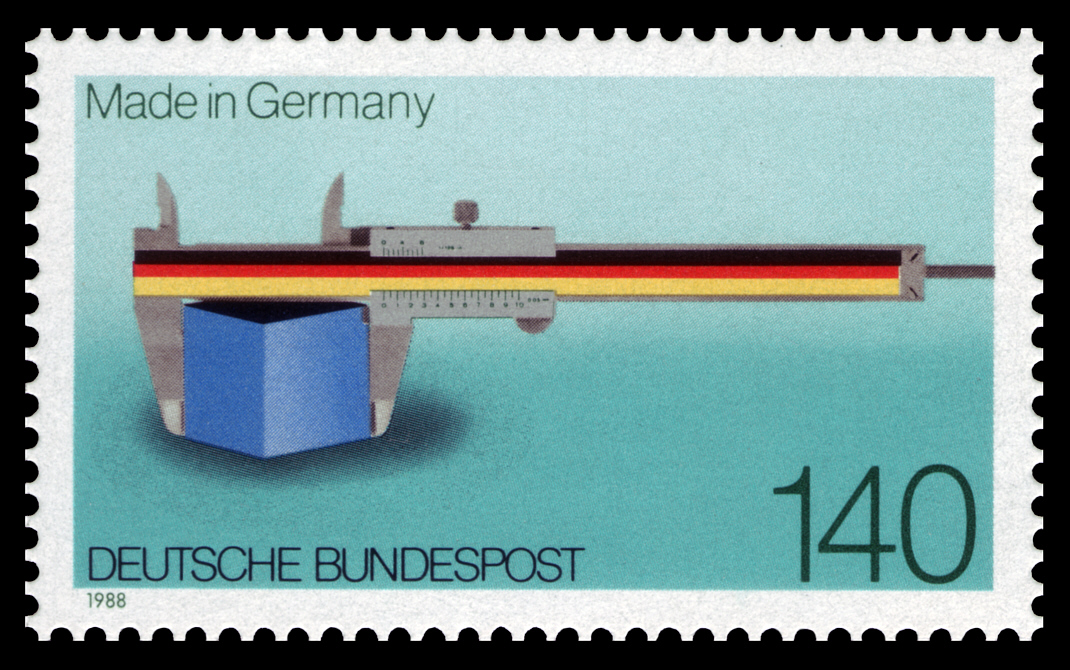Made In Germany on:
[Wikipedia]
[Google]
[Amazon]
 Made in Germany is a merchandise mark indicating that a product has been
Made in Germany is a merchandise mark indicating that a product has been
 The label was introduced in
The label was introduced in
 Made in Germany is a merchandise mark indicating that a product has been
Made in Germany is a merchandise mark indicating that a product has been manufactured
Manufacturing is the creation or production of goods with the help of equipment, labor, machines, tools, and chemical or biological processing or formulation. It is the essence of the
secondary sector of the economy. The term may refer to a ...
in Germany
Germany, officially the Federal Republic of Germany, is a country in Central Europe. It lies between the Baltic Sea and the North Sea to the north and the Alps to the south. Its sixteen States of Germany, constituent states have a total popu ...
.
History
Britain
Britain most often refers to:
* Great Britain, a large island comprising the countries of England, Scotland and Wales
* The United Kingdom of Great Britain and Northern Ireland, a sovereign state in Europe comprising Great Britain and the north-eas ...
by the Merchandise Marks Act 1887
The Merchandise Marks Act 1887 ( 50 & 51 Vict. c. 28) was an act of the Parliament of the United Kingdom.
The act stopped foreign manufacturers from falsely claiming that their goods were British-made and selling them in Britain and Europe on th ...
( 50 & 51 Vict. c. 28), to mark foreign produce more obviously, as foreign manufactures had been falsely marking inferior goods with the marks of renowned British manufacturing companies and importing them into the United Kingdom. Most of these were found to be originating from Germany, whose government had introduced a protectionist policy to legally prohibit the import of goods in order to build up domestic industry (Merchandise Marks Act - Oxford University Press).
According to Professor Asaf Zussman, Stanford Institute for Economic Policy Research, in "The Rise of German Protectionism in the 1870s: A Macroeconomic Perspective", the "Rye and Iron" tariffs introduced by Bismarck's Germany in 1879 caused a major reduction of imports in order to protect Germany's industries. As a response, the Free-trade Liberal government in the UK introduced the Merchandise Marks act to allow consumers to be able to choose whether or not they would continue to purchase goods from protectionist economies.
Germany successfully leveraged the ''Made in Germany'' tag as a brand synonymous of product quality, durability and reliability.
"Made in Germany" is not controlled by a central regulatory body. However, In 1973, the Bundesgerichtshof
The Federal Court of Justice ( , ) is the highest court of civil and criminal jurisdiction in Germany. Its primary responsibility is the final appellate review of decisions by lower courts for errors of law. While, legally, a decision by the F ...
made a ruling that the label ''Made in Germany'' cannot be restricted to west German companies only. After this ruling, Made in West Germany
West Germany was the common English name for the Federal Republic of Germany (FRG) from its formation on 23 May 1949 until German reunification, its reunification with East Germany on 3 October 1990. It is sometimes known as the Bonn Republi ...
was often used in Western Germany, while Made in GDR
East Germany, officially known as the German Democratic Republic (GDR), was a country in Central Europe from its formation on 7 October 1949 until its reunification with West Germany (FRG) on 3 October 1990. Until 1989, it was generally vie ...
was used in eastern Germany.
In 1995, the Oberlandesgericht
An (; plural – ; OLG, , or in Berlin '' Kammergericht'': KG) is a higher court in Germany.
There are 24 in Germany and they deal with civil and criminal matters. They are positioned above regional courts () and below the Federal Cour ...
Stuttgart
Stuttgart (; ; Swabian German, Swabian: ; Alemannic German, Alemannic: ; Italian language, Italian: ; ) is the capital city, capital and List of cities in Baden-Württemberg by population, largest city of the States of Germany, German state of ...
ruled that the term ''Made in Germany'' is misleading according to Germany's Fair Trades Act when the largest part is not German raw materials or German craftsmanship.
See also
*Country of origin
Country of origin (CO) represents the country or countries of manufacture, production, design, or brand origin where an article or product comes from. For multinational brands, CO may include multiple countries within the value-creation proce ...
References
Further reading
* * * {{Authority controlGermany
Germany, officially the Federal Republic of Germany, is a country in Central Europe. It lies between the Baltic Sea and the North Sea to the north and the Alps to the south. Its sixteen States of Germany, constituent states have a total popu ...
Economy of Germany
Manufacturing in Germany